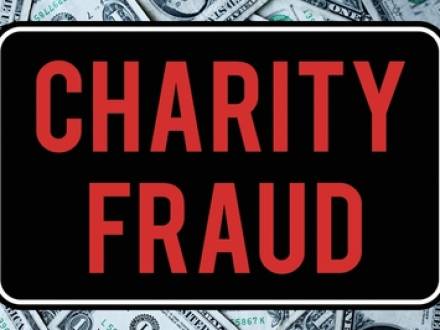Charity Fraud Charges After the Holidays
 The winter holiday season is often called the "season of giving." Individuals and corporations alike are most likely to make charitable donations during the month of decision. Not only is it the holidays, but it is also the end of the year, causing people and businesses hoping to get their tax write-offs to make last-minute donations. With the amount of people who donate and the number of organizations that aggressively seek donations during this time of year, it should be unsurprising that those seeking to profit from charity fraud are also very active during December. These white-collar fraud schemes can translate to a lot of arrests and federal charges in January. If you have been accused of charity fraud, you need a highly experienced federal white-collar crimes attorney to help you.
The winter holiday season is often called the "season of giving." Individuals and corporations alike are most likely to make charitable donations during the month of decision. Not only is it the holidays, but it is also the end of the year, causing people and businesses hoping to get their tax write-offs to make last-minute donations. With the amount of people who donate and the number of organizations that aggressively seek donations during this time of year, it should be unsurprising that those seeking to profit from charity fraud are also very active during December. These white-collar fraud schemes can translate to a lot of arrests and federal charges in January. If you have been accused of charity fraud, you need a highly experienced federal white-collar crimes attorney to help you.
Failed Charitable Ventures Can Look Like Fraud
Say you have an idea to hold a fundraising event to benefit a local charity you are fond of. You book a venue and start selling tickets. A few people donate without buying a ticket. You reach out to the charity, and it allows you to advertise your fundraiser using its name. Unfortunately, you do not sell nearly as many tickets as you expected to, and the event would now cost money, so you cancel. You already spent the funds you brought in planning the event. You now have a handful of angry donors demanding to know where their money went since none ultimately went to the charity.
From the outside, it might look like you simply pocketed everyone’s money and had no intention of holding the fundraiser to benefit the charity. This can be enough to trigger a federal investigation. In this example, your attorney will likely be able to prove that you had no intention to defraud anyone and did not profit through forensic accounting. Other forms of failed attempts to help a charity can be much more complex and difficult to dissect.
Common Charity Fraud Schemes
Charity fraud schemes can be incredibly complex, spanning years, or incredibly simple. Forms charity fraud might take include:
- Soliciting donations for a charity that does not exist.
- Setting up a nonprofit entity that does no real charity work.
- Using donations for a charity you are affiliated with for personal gain, which may be considered embezzlement.
- Deliberately misstating what donations will be used for.
- Posing as a representative of a nonprofit you are not affiliated with to collect donations.
- Faking a need to receive support from a charity, such as by falsely claiming that your healthy child has cancer.
Contact a Dallas County, TX White-Collar Crime Lawyer
Spencer & Associates is experienced in representing people accused of charity fraud. Aggressive Dallas, TX federal white-collar crimes attorney Arnold Spencer will strive to offer you the best representation possible. Contact us at 214-385-8500 for a complimentary consultation.




